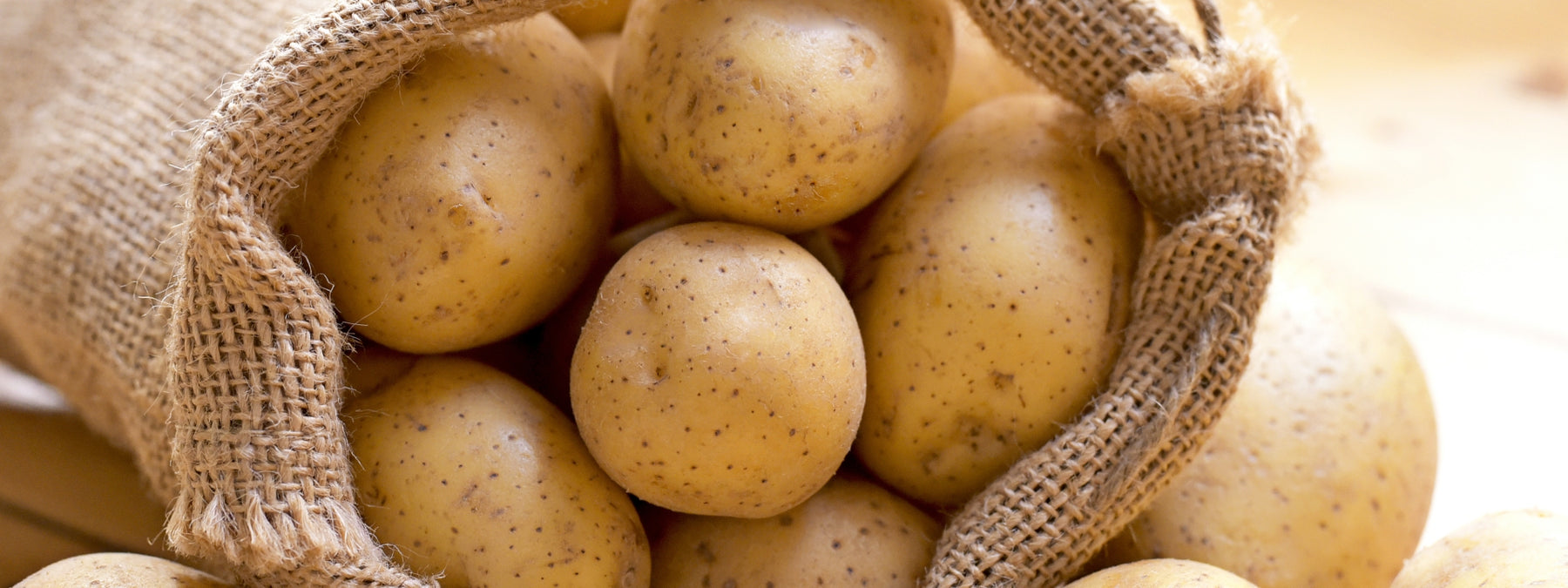
Can You Really Lose Weight Eating Potatoes?
When you think about the food choices someone “must” make to lose weight, you often don’t see potatoes wrapped into the “good foods” group.
But why?
They are full of carbs, calorie dense and are starchy. Plus, you make French fries with them… And who doesn’t like a basket of fries?
What if I told you that you could eat potatoes and lose weight? Would you believe me?
Related - Build Muscle on $7 a Day
When prepared properly, potatoes are a decent food choice, especially if you match them up with other nutritious foods. Both sweet potatoes and regular potatoes can be part of a healthy diet.
But that doesn’t necessarily mean we have to give up the fun foods — we just need to try other potato dishes.
So let’s go over the nutritional profile for potatoes and sweet potatoes and why you shouldn’t fear the glycemic index or carbohydrate content.
How Carbohydrates Work
For some reason, many people think that carbohydrates only make you fat. Carbohydrates are an easy to use source of energy and we tend to store it easily if we overeat them.
Carbs are the starches, sugars, and fiber that you find in fruit, grains, vegetables, and dairy products. They are demonized in many diets and they are one of the basic food groups we need to consume in order to have a healthy life.
It’s the overconsumption of carbs that kill us… Literally.
Carbohydrates are a macronutrient. They are the body’s main source of energy and they are called carbohydrates because at the chemical level they contain carbon, hydrogen, and oxygen.
I learned this today.
There are three types of macronutrients — protein, fat, and carbs. They are essential for our bodies to function properly. The body cannot create macronutrients on its own, which is why it is important to eat a well-balanced diet.
It is recommended to have around 135 grams of carbs per day according to the National Institutes of Health. They do, however, recommend that everyone should have their own carbohydrate goal.
Eating carbs isn’t bad.
Carb intake for most people should be around 45 to 65 percent of their total calories. One gram of carbohydrates equal around 4 calories. This means a 2,000 calorie diet per day could have anywhere between 225 to 325 grams of carbs.
It is recommended to stay under 200 grams of carbs per day if you have diabetes. Pregnant women should try to eat at least 175 grams of carbs per day.
Carbohydrates provide fuel to our nervous system and also give our muscles energy. They are great for preserving your gains from being used as an energy source. They are also suggested to enable fat metabolism.
Carbs are pretty important for brain function, too. They have an influence on mood and memory and they are a quick source of energy. The recommended daily intake of carbs is actually based on the amount of carbs your brain needs to function.
The Nutrition of Potatoes
To my surprise, sweet potatoes and white potatoes are similar in their nutrition. There are a couple differences when we compare them side by side… So here is how they stack up for each 100 grams.
Sweet Potatoes
- Calories: 86
- Protein: 2 g
- Carbs: 20 g
- Fiber: 3 g
- Sugar: 4 g
- Calcium: 30 mg
- Sodium: 55 mg
- Magnesium: 25 mg
- Potassium: 337 mg
- Vitamin C: 2 mg
- Folate: 11 ug
- Choline: 12.3 ug
- Vitamin A: 14,187 iu
- Lutein and Zeazanthin: 0 ug
White Potatoes
- Calories: 69
- Protein: 2 g
- Carbs: 16 g
- Fiber: 2 g
- Sugar: 1 g
- Calcium: 30 mg
- Sodium: 16 mg
- Magnesium: 21 mg
- Potassium: 407 mg
- Vitamin C: 337 mg
- Folate:18 ug
- Choline: 11 mg
- Vitamin A: 8 iu
- Lutein and Zeazanthin: 13 ug
As you see, the sweet potato offers a lot more vitamin A, calcium, and folate… but they are higher in sugar. White potatoes are similar with vitamins and minerals, but they have more potassium. When you compare them to sweet potatoes, they are great sources of lutein and zeaxanthin — which maintains eye health.
Potato Myths
While potatoes are notorious for being “full of carbs,” both white and sweet potatoes have a naturally occurring carbohydrate called resistant starch. This can’t be processed by digestive enzymes similar to fiber.
Resistant starch has been linked to health improvements in your gastrointestinal tract and in your digestive system. Simply put, these are healthy carbs our body needs to function at its best.
The glycemic index of potatoes depends a lot on a few factors such as processing and preparation, the variety and origin, maturation, and the other foods consumed with it. Try eating a nice baked potato with the skin on with some lean protein and log how much you eat. Adding veggies to a potato helps keep blood sugars more stable.
Try New Preparations
Instead of going for a bag of chips or your favorite fast food fries, try a different potato dish.
Try baking, broiling, roasting, or even steaming a potato to help preserve the nutrient level. This should help keep your blood sugar levels more stable. Try a nice loaded potato soup, a sweet potato pizza, a baked potato, or splurge every once in a while and make some hash browns.
Log your intake and enjoy them.


Leave a comment